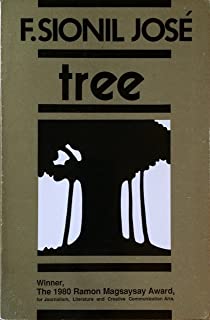F Sionil José’s novel, My Brother, My Executioner, is set in a period of Philippine history whose international significance is worthy of wider knowledge. The author’s Rosales novels describe the life of a Filipino family over several generations. Rosales is a fictitious town, but its location is quite real, as is the history that unfolds around it. Rosales is in Ilocos, in northern Luzon, whose people are seen by many Filipinos as a race apart. The events that form the backdrop to My Brother, My Executioner are the Huk rebellion.
It’s the 1950s. Don Vicente is a Rosales landowner and he is ill, close to the end of his life. He reminisces, recalling the immense suffering of his wife who presented him with multiple miscarriages. But he did have a son, Luis, born of a poor woman is a small village called Sipnget. So, unlike others from that poor place, Luis received an education courtesy of the fees his rich father could pay. He became a writer and moved to Manila to pursue a self-contained,and ultimately selfish life.
Luis writes for a magazine owned by Dantes, a rich businessman with a reputation for ruthlessness. Esther, the boss’s daughter, fancies Luis, but her advances are not reciprocated, except intellectually. Personal tragedy threatens.
Luis is also worshipped by Trining, a teenage cousin who shares some of his roots. When Luis’s father notes their affinity and also identifies the convenience that their marriage would facilitate. Luis seems quite happy to do the right thing. Trining has her way with him and promises to bear him a dozen children. The first is soon conceived.
But it is when Luis makes a visit to his father’s house, a rare excursion beyond Manila’s city limits, that he also decides to look up his estranged mother. He visits Sipnget to find his home village levelled and burnt, its inhabitants ‘disappeared’, its crops destroyed. The Huk guerrillas have been there and the military, amply aided by local militias have cleansed the area. The militias, of course, are controlled by Luis’s father and they have driven his mother from her home.
Luis resolves to publicise the injustice. He researches the events, writes an article and publishes. But when vested interests question his facts, his motives and allegiances, he finds himself challenged on many fronts.
In another twist in the scenario we meet Vic, Luis’s half-brother. He was a freedom fighter during the Japanese occupation. While collaborators made money, he fought with the resistance that sought liberation from foreign rule. Now he is the commander of a Huk unit, a leader of a communist insurgency, if I might use a word that would be employed today to describe indigenous resistance. Vic operates near Rosales.
The Huk rebellion is an era of Philippine history that surely deserves wider analysis and discussion. It became a hotspot of the early Cold War. Events in Korea occupy the 1950s limelight, of course, but the Philippine rural guerrilla war was perhaps a precursor of what we now call Vietnam. The United States was involved, of course, and when the rebellion against the landowners was defeated under President Magsaysay’s leadership, he became an internationally-renowned champion of the North-American brand of freedom. In 1980, F Sionil José received the Ramon Magsaysay Award for Journalism, Literature and creative Communication Arts.
Given this history, a history that is incidentally wonderfully described by Benedict Kerkvliet in his book The Huk rebellion, there ought to be more than ample scope for the novelist to create tension, conflict and surprise. Unfortunately, the denouement of My Brother, My Executioner is a tad predictable. The tragedy is eventually too personal, its obvious metaphor becoming a punch pulled. Little is made of the potential conflict between the inheriting Luis and Vic, his guerrilla-commander brother. The book remains an engaging and enjoyable read, but the drama of its setting seemed to promise much more.





